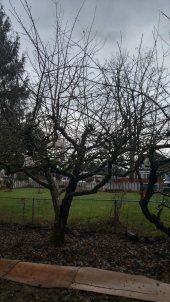I encourage all birds, and my garden is full of tall, slender bamboo 'perches'.
Thrushes are one of the few critters round here that will go for snails: make sure there's plenty of 'snail anvils' around the garden

Did I miss worms on your list?
Composters like centipedes, woodlice and springtails.
Flies-not houseflies and their maggoty ilk, but hover, drone, bee flies etc who do a great job pollinating around here.
Butterflies. They don't
do an awful lot, but they're lovely to have around, and there's not all that many opportunities to insert words like 'metamorphosis' into conversations with kids!







